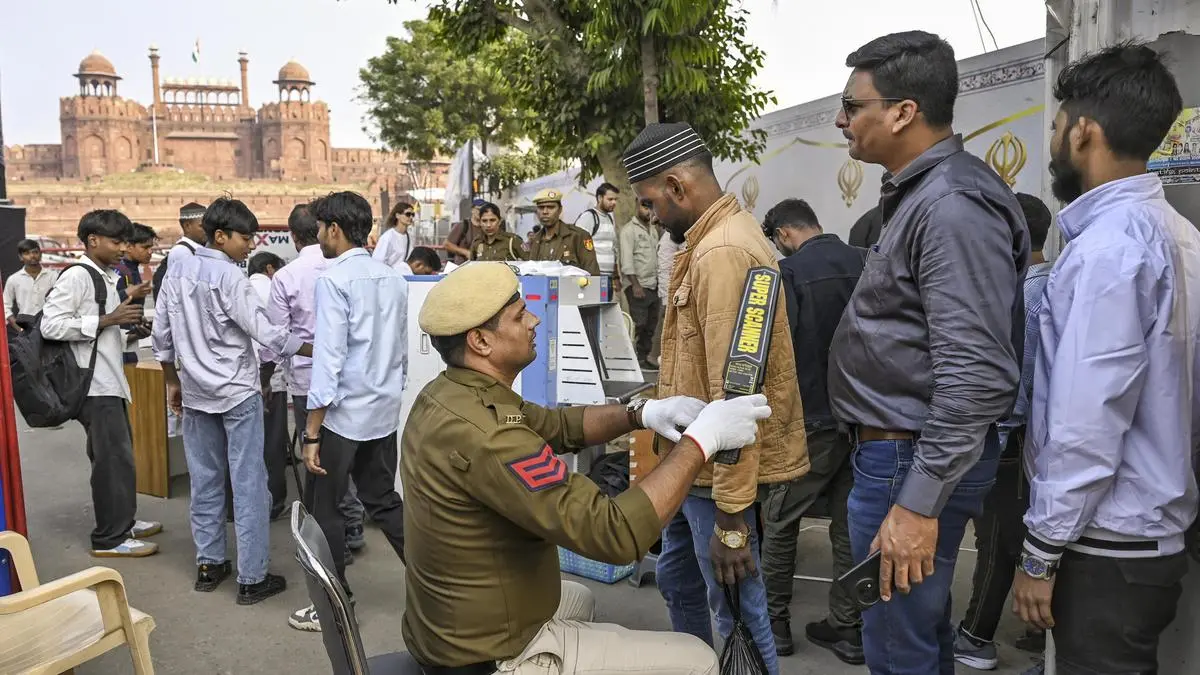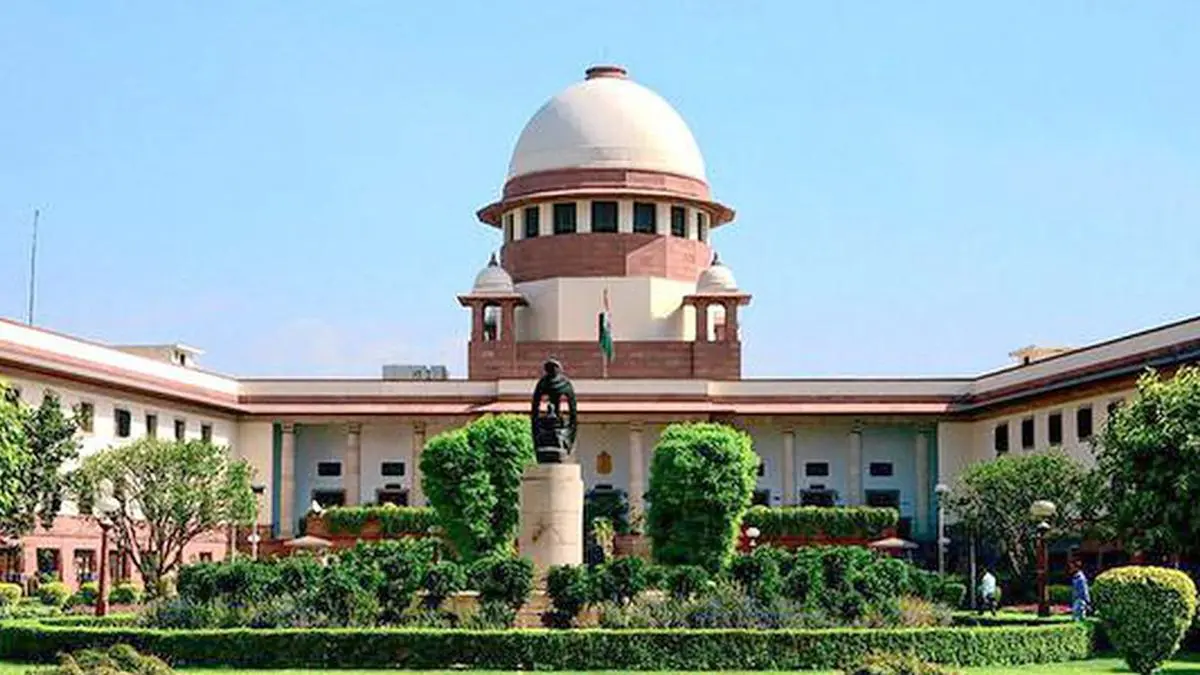When a Blast Echoes Through Every Door
By: Javid Amin | 26 November 2025
The car-bombing near Delhi’s iconic Red Fort on 10 November 2025 shook the nation — 13+ people killed, many injured, the capital on high alert.
But the shockwave didn’t just affect the blast victims. It rapidly morphed into a wave of suspicion and collective blame — especially targeting Kashmiris residing across India. Reports now show increasing housing discrimination, forced evictions, landlord refusals, and institutional measures disproportionately affecting Kashmiri Muslims and students.
This article delves into how a single violent act catalyzed a widespread social and housing crisis for countless innocents — and why this matters for civil rights, social cohesion, and national conscience.
Ground Reports: Real Stories of Housing Bias & Eviction
“City I lived in for 13 years doesn’t want me” — A Life Uprooted Overnight
-
In Delhi–NCR, professionals like a 36-year-old communications specialist, after living in the capital for over a decade, found themselves unable to secure rental accommodation following the blast. Landlords and brokers refused outright when she identified as a Kashmiri Muslim.
-
The same pattern — long-term residents suddenly rendered homeless — has repeated across Gurgaon (Gurugram), Faridabad and other NCR suburbs.
Mass Tenant Verification — Official Crackdown, Social Fallout
-
In Gurugram, police issued directives under the new security guidelines requiring all housing societies, PGs, guest-houses, and landlords to submit detailed registers of tenants — specifically listing residents from Jammu & Kashmir and foreign nationals.
-
The directive is in force until January 2026, and many view it as selective — disproportionately impacting Kashmiris.
-
In neighbouring Faridabad, authorities have questioned over 2,000 Kashmiri students and tenants as part of probe efforts.
Students Evicted, Grocery Denial — Daily Life Turned Hostile
-
Student bodies report repeated incidents of evictions, abrupt hostel/PG displacements, refusal of basic services like grocery deliveries, and unprovoked questioning — even by shopkeepers.
-
Many students and professionals say they now avoid public transport, avoid speaking Kashmiri or Urdu in public, and are shifting to Muslim-majority localities to feel safer.
“The city I lived in for 13 years doesn’t want me,” a woman reportedly told Times of India, capturing the heartbreak of sudden alienation.
Institutional and State Response: Security vs Civil Rights
Official Security Directives — What They Do
-
Under Section 163 of the Bharatiya Nagarik Suraksha Sanhita (BNSS) 2023, authorities in Gurugram instructed societies and PGs to maintain detailed tenant registers, including ID copies, demographic data, and nationality.
-
Enforcement began immediately after the Red Fort blast — dubbed a “security verification drive” ahead of New Year and Republic Day.
However — critics argue — such measures carry implicit bias. When “verification drive” disproportionately targets Kashmiris, the result is collective suspicion, eviction, and forced ghettoization.
Community & Student Bodies Raise Alarm
The Jammu and Kashmir Students Association (JKSA) declared the new wave of profiling “dangerous”, calling for urgent public assurance from national leadership.
JKSA’s convener emphasised that Kashmiris believe in India’s democracy and strongly reject terrorism — but now find themselves under a “cloud of suspicion” regardless.
Former politicians and regional leaders also warned — collective blaming of a whole community would harm national unity and betray constitutional values.
Why This Trend Is Dangerous: The Cost of Collective Blame
1. Erosion of Civil Rights & Dignity
Landlords or PG-owners demanding tenants vacate simply because of their Kashmiri identity undermines basic rights. People with stable jobs, long term stays, suddenly find themselves homeless. Housing should never be conditional to ethnicity or origin.
2. Educational & Career Disruption
Students evicted from hostels or PGs — often mid-term — risk missing classes, losing scholarships, or shutting educational opportunities. Professionals may lose jobs if they can’t secure housing — disproportionate impact on those trying to build a life away from home.
3. Social Alienation & Mental Health Impact
The reports of denial of groceries, refusal of services, hostile looks, suspicion in public spaces — these create a climate of fear, anxiety, alienation. People avoid public transport, change routines, avoid speaking their language. Over time, it can lead to deep trauma and sense of not belonging.
4. Potential for Long-Term Segregation
Repeated evictions and housing refusals push many Kashmiris to cluster in “Muslim-majority localities”— a form of social ghettoization. This segregation harms social integration, and entrenches communal divides.
5. Undermining Social Trust & Rule of Law
When state action is perceived as targeting a community based on origin rather than individual suspicion, it weakens institutional trust. It reinforces collective guilt over individual accountability — a dangerous precedent for any plural, democratic society.
Voices from the Ground: Pain, Fear & Pleas for Normalcy
“Students are being told to vacate PGs in the middle of the night… we are treated as suspects before any investigation. Where is our dignity?”
— A Kashmiri student from a northern Indian university.
“The city I lived in for 13 years now doesn’t want me. I have to start over — again.”
— A Kashmiri professional in Delhi-NCR.
“We condemn terror in the strongest terms — but that doesn’t mean every Kashmiri is a suspect.”
— Statement by JKSA and several civil-rights voices.
These voices reflect a growing sense of betrayal — of citizenship, identity, dignity.
Broader Context: Why Kashmiris Feel Targeted (Again)
1. Security-First Measures Post Blast
After the blast near Delhi’s Red Fort, security agencies launched an intense investigation. Several suspects from a medical-academic background were detained, triggering a nationwide scrutiny of Kashmiri residents and students.
2. Historic Precedents of Stereotyping & Distrust
This isn’t the first time Kashmiris faced backlash after a terror incident. Prior attacks in Kashmir or other states have often spurred suspicion, communal tension, and collective blame — making this an unfortunate recurring pattern.
3. Institutional Actions That Amplify Stigma
Policies like mandatory tenant registration (especially singling out J&K residents), repeated inquiries, blanket questioning of students — even without individual suspicion — create structural discrimination.
4. Social Media & Media Narratives Fuel Bias
Following the blast, online rhetoric surged. Anti-Muslim or anti-Kashmiri narratives spread widely — social media, WhatsApp groups, gossip — influencing community attitudes even before investigations concluded.
When fear leads to bias, identity becomes guilt — and that’s where democracy fails.
What Should Be Done: A Roadmap for Justice, Dignity & Integration
Clear Political Statement Against Profiling
National and state leadership must publicly condemn discrimination against Kashmiri residents, reiterate that citizenship cannot be equated with guilt, and protect civil rights.
Anti-Discrimination Enforcement in Housing
Housing societies, PGs, and landlords must be prohibited from discriminating on the basis of region, religion or origin. Violation should attract legal consequences.
Provide Safe Housing & Support for Affected Kashmiri Families
For those evicted or displaced, government and civil-society must offer temporary accommodation, aid in relocating, and ensure their basic needs are met — especially students and professionals.
Responsible Media Coverage & Public Messaging
Media outlets and public voices must avoid broad generalizations. Focus should remain on individual culpability, not community blame. Social media platforms should actively moderate hate speech.
Community Outreach & Dialogue Initiatives
Neighbourhood associations, colleges, organizations should hold community dialogues, inclusion drives, encourage empathy, and support integration rather than isolation.
Education & Counseling for Youth
Students facing trauma, isolation or anxiety should be given psychological support, peer-counseling, and legal advice to ensure they can continue education without fear.
Why This Issue Demands Nationwide Attention
-
It threatens constitutional values of equality, justice and dignity.
-
It damages social fabric and national unity.
-
It undermines merit, education, and careers of thousands of innocent individuals.
-
It rewrites national security narratives into identity-based suspicion — a dangerous precedent.
-
It risks generational alienation, especially among youth and migrant Kashmiris who consider India their home.
This isn’t just a “Kashmir issue.” It is a citizen’s issue — about who belongs and who gets belongs.
Bottom-Line: Safety With Justice — Not Collective Suspicion
The Red Fort blast was a tragedy. It demands justice, investigation, accountability. But — the investigation must be fair. The security response must not turn into systemic bias. And citizenship must never translate to guilt by default.
Every eviction, every forced move, every landlord’s refusal echoes beyond a housing crisis. It signals — “you don’t belong.”
For a democracy built on unity in diversity, this is a wound that must be healed — with courage, compassion, and constitutional commitment.
We must remember: innocent citizens can’t pay for the crimes of a few. Security must not mean profiling. Justice must mean fairness.


